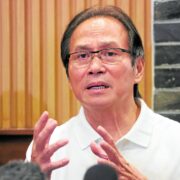Farmers’ cooperatives seek to scale up with boost from business big brothers
Go Negosyo, the advocacy arm of the Philippine Center for Entrepreneurship (PCE), has teamed up with the Cooperative Development Authority (CDA) to help local farmers scale up their operations.
Through a formal agreement signed last Jan. 4, the two partners intend to identify and organize cooperatives that bigger enterprises may assist in consolidating their produce, meeting market needs, accessing credit and receiving training.
Go Negosyo described the partnership as one that would support and implement the objectives of their Kapatid Angat Lahat Agri Program (Kalap), the goal of which is to integrate small farmers into the value chain of large agricultural companies.
“The bottom line is poverty alleviation, and many of the poor are in the agriculture sector,” Go Negosyo founder Joey Concepcion said in a statement. “Unless we fix that, we will never solve the problem of poverty,”
Concepcion said there are several different inclusive business models that corporate “big brothers” in Kalap have already implemented.
“The cooperatives can adapt the models suited to their crop and forge a relationship with the big-brother corporations, such as helping them get access to technologies and markets,” he added.
For his part, CDA chair Joseph Encabo said the teamup was “timely” given current efforts to strengthen Philippine cooperatives and to start the consolidation process for local farmer groups.
“As we implement the merger-consolidation focusing on agriculture cooperatives, the program can directly infuse them and roll out as they make cooperatives’ resources bigger, expand their membership and add to their assets,” Encabo said.
Further, Go Negosyo noted that much hope has been placed on the revitalization of the Philippines’s agriculture sector, adding that raising productivity in the country is seen as critical in generating additional jobs and stimulating economic activity—especially in the provinces.
Citing World Bank estimates, the advocacy group said that around 43 percent of the country’s land area is agricultural while the sector only accounts for around 24 percent of local employment. INQ















